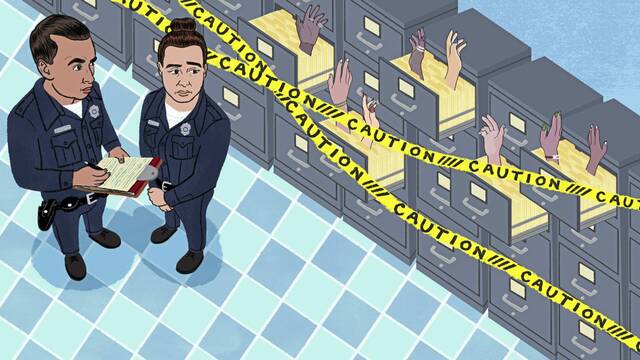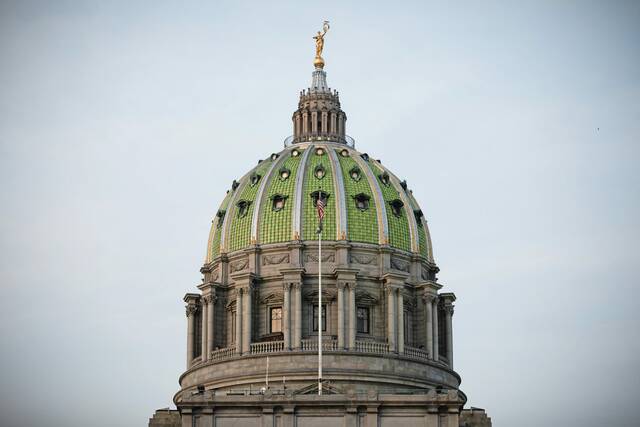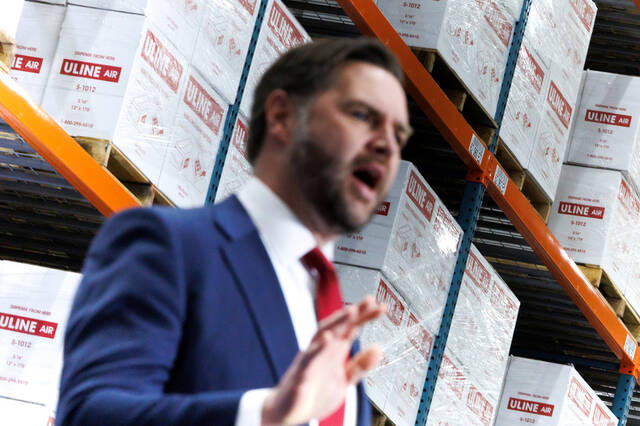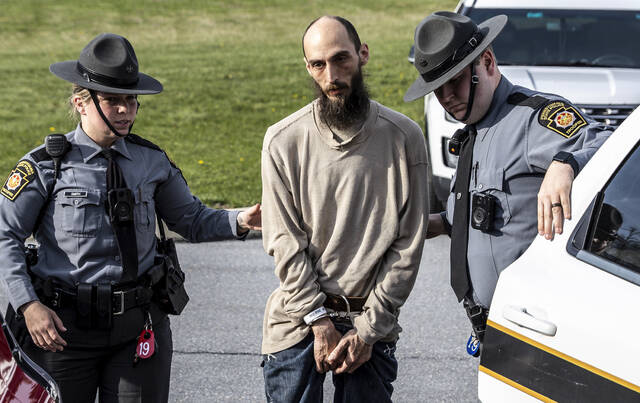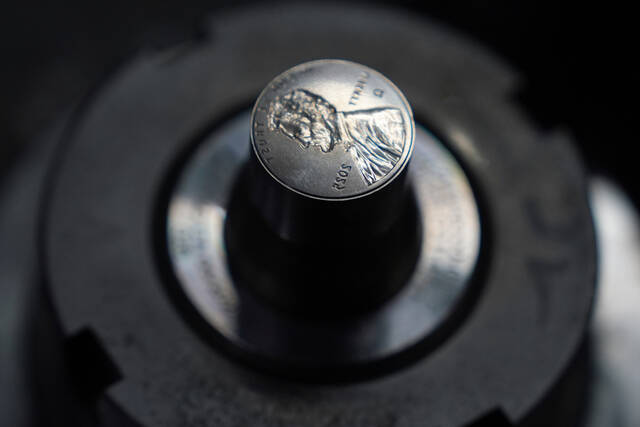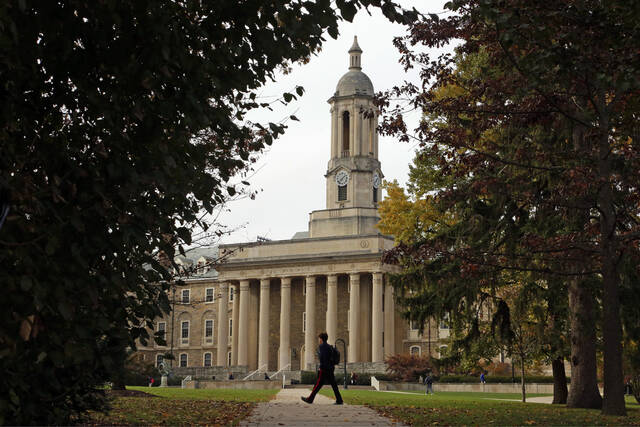Daniel Stern said he was never planning to vote for President Trump, even if the pandemic hadn’t disrupted nearly every facet of American life.
Stern, 75, of Blawnox voted by mail for former Vice President Joe Biden weeks ago. The decision, he said, was made “months and months ago.”
Barbara Barnhill decided to stick with Trump despite the past few turbulent months because she disagrees with key parts of Biden’s political platform.
“I would have voted for (Trump) even if covid hadn’t been around,” said Barnhill, 65, of Chartiers.
They aren’t alone. While covid-19 has fundamentally changed the course of the 2020 election, many voters say their minds were made up long before the crisis hit.
The presidential debates focused extensively on the candidates’ respective covid-19 response plans. Trump contracted the virus himself, later recovering and then claiming the virus was “nothing to be afraid of.”
In-person campaigning was reduced dramatically. Speeches, rallies and tweets have revolved around this central issue.
But it’s hard to say if covid-19 made a real impact on voters’ decisions in Pennsylvania — at least for those who are definitively conservative or liberal.
More than a quarter of likely voters (27%) see the virus as the most pressing issue for the state, according to a Franklin & Marshall College poll released last week. But in recent months, more and more voters have shifted their concerns to the economy (21%).
Another key takeaway from the poll: the overall consistency on stark political division. Almost every topic — including covid-19 — shows a rift along party lines, and that hasn’t changed in months.
“The problem is that people are so hardened in their views, (covid-19) may not make any change at all,” said Terry Madonna, a Franklin & Marshall professor of public affairs and director of the poll.
Pandemic politics
Even with minds made up, it’s undeniable that the pandemic altered this election year. In September, the Franklin & Marshall poll found that one in three respondents said they know someone who contracted the virus, which had been an increase from July.
“It’s affected our own personal behavior,” said Stern, the Biden voter from Blawnox. “Everyone is frustrated because they can’t do life as they used to. People are being profoundly affected, and that’s if you survived.”
Some voters say the pandemic has put typical election-year issues in a new light.
Al Smith, 62, of Penn Hills, said covid-19 brought more urgency to his views on health care. While he said his employer provides him with decent insurance, he felt many Americans would be neglected if the Affordable Care Act were repealed, especially during a public health crisis.
“This kind of brought that risk to a reality,” Smith said. “When there’s a pandemic or any type of health care emergency, unless that happens, you don’t really get a chance to see that as much. It’s to the forefront: There are folks who really can’t afford to be checked up on.”
But Smith said he’s voting for Biden for a “multitude of reasons” and had never considered voting for Trump. The pandemic merely reinforced his decision, he said.
Democrats have been vocal in their criticism of Trump’s pandemic response, which has infected nearly 9 million Americans and killed more than 200,000. The president has repeatedly contradicted health experts and downplayed the severity of covid-19.
An interim report released Friday by a subcommittee in the U.S. House, where there is a Democratic majority, criticized the administration’s lack of a coordinated national plan and failure to provide economic support. The subcommittee’s ranking Republican dismissed the report as partisan.
Many Republican voters believe the pandemic is irrelevant to assessing Trump’s performance — citing the strength of the economy before the shutdown, and arguing that other nations also have struggled. According to the political website FiveThirtyEight, about 83% of Republicans nationwide approve of Trump’s response as a whole.
“Everybody knows the virus is real. But other than locking yourself up in your basement like Joe Biden was doing on the campaign, there’s not a lot of other ways to avoid potentially coming in contact (with the coronavirus),” Allegheny County Republican Committee Chairman Sam DeMarco said at a rally for Vice President Mike Pence in September.
“At this point, a lot of the cake is baked in that these little things … are not going to make a big difference, nor are some of these claims against the president,” DeMarco said.
Barnhill said she appreciated Trump’s approach of deploying health resources such as ventilators early in the pandemic. And while she said she disapproves of his apparent aversion to masks, she believes he has done as well as can be expected during the crisis, when information is changing daily.
“Everybody is guilty of saying things and not being 100% on the information, or they say things and they’re misinterpreting it,” she said. “It’s not always cut and dry.”
Renae Billow-Benford, 38, of Johnstown, has attended Trump rallies in Latrobe, Johnstown and Moon Township, along with another while visiting a relative in Florida. Asked whether the pandemic and recent surges in cases will impact the election, she shook her head no and said, “I don’t think so at all.”
“We’re not seeing the deaths as much as the cases. There’s much more cases than deaths,” Billow-Benford said. “It just doesn’t scare me.”
No political candidates in at least a century have had to deal a pandemic as a major campaign issue. It’s a subject that political scientists say neither party is most equipped to handle flawlessly, but the pandemic has become politicized just the same.
“It’s like the weather — it affects everybody,” said Philip Harold, a political science professor at Robert Morris University. “In a sense, it shouldn’t be political. … It’s funny that we wouldn’t all be on the same team.”
‘Uncharted territory’
Penn Hills’ Smith said the pandemic “mobilized” him to get more involved as a campaign volunteer — something he hadn’t dedicated his full effort to since Barack Obama’s 2008 victory.
Smith had friends die from covid-19 early on in the pandemic. He said he felt angry, wondering if the outcome would have been different had they known about the threat sooner. He said he became twice as active participating in literature drops and phone banks for the Biden campaign.
But overall, the very process of democracy has been challenged by the need for physical distancing and the closure of public spaces.
In the spring and summer, virtual town halls and livestreamed conventions brought voters into the living rooms of their candidates. Trump events in the area mostly carried on, with rallies in Latrobe and Johnstown in recent months and another planned in Butler County on Saturday. Biden’s campaign halted most in-person events until recently. In late September, Biden took a whistle-stop train tour from Cleveland to Johnstown, giving short speeches at various spots, rather than mingling and shaking hands with voters. Gatherings for both candidates have been smaller, reaching fewer people in person and fundamentally changing the way voters interact with their candidates.
It was an innovative shift, said Joe DiSarro, a political science professor at Washington & Jefferson College, but one that certainly favors some candidates over others. Candidates with younger, more tech-savvy bases will have an easier time engaging online, he said. At the local level, incumbents with greater name recognition and those with more funding for digital advertising are at an advantage.
“You cannot go out and ‘press the flesh,’ as they used to say,” DiSarro said, noting this is the first election cycle in his memory that a canvasser hasn’t knocked on his door. “This is uncharted territory, and it will be studied for years after this election.”
The pandemic also ushered in mass use of mail-in ballots, which experts say will significantly expand access to voting. Already in Pennsylvania, more than 2.1 million ballots have been returned, making up about 35% of the state’s total voter turnout in 2016. Many voters who spoke to the Tribune-Review said they sent in their ballots weeks ago.
Yet, polls show that confidence in mail-in ballots is split almost along party lines, and Trump has repeatedly claimed without evidence it could lead to mass election fraud. Nothing is certain, though the nation’s political division figures to be on full display as officials work to count an avalanche of ballots.
“I think we’re in for some unpleasantness,” Harold said. “Buckle your seatbelts.”



